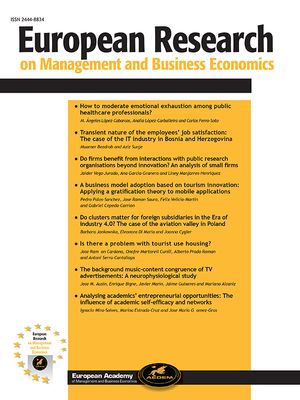Este trabajo se centra en la gestión del resultado hacia unos umbrales de rentabilidad que se consideran críticos: evitar declarar pérdidas y descensos en resultados, en una muestra de empresas hoteleras. El estudio empírico se divide en dos etapas. En primer lugar, se plantean los histogramas de frecuencias para detectar la existencia de una discontinuidad en torno a cero. En segundo lugar, se analiza la incidencia de los ajustes por devengo discrecionales y otra serie de variables financieras en los intervalos críticos de pequeñas pérdidas (pequeños descensos en resultados) frente a pequeños beneficios (incrementos en resultados). La evidencia empírica obtenida en la muestra de empresas hoteleras no permite rechazar la hipótesis de evitar declarar pequeñas pérdidas. La comparación de las empresas que no alcanzan los umbrales de rentabilidad frente a las que consiguen sobrepasarlos apoya la idea de que existe una conducta diferenciada si se atiende a un conjunto de variables y ratios financieros.
This paper focuses on earnings benchmarks using a sample of Spanish hotel firms. In particular, we examine two earnings benchmarks: loss avoidance and earnings decreases avoidance. First, we use frequency histograms to detect a discontinuity around zero. Second, we use discretionary accruals and other variables to analyze the existence of a different behaviour between firms just miss the benchmark and firms just beat the benchmark.
The results show that managers of Spanish hotel firms avoid reporting losses. It is also detected that firms just beat the benchmark present different profile in fundamental variables in relation to firms just miss the benchmark.





